
Politburo member and National Assembly Chairman Vuong Dinh Hue congratulates workers in the capital on the New Year_Photo: VNA
The development process of the State and society has had ups and downs in different stages, but the people always hold the central position and key role in every revolution and in the cause of innovation. The history of building and defending the country of our nation has proven that wherever and whenever we know how to take the people as the root, care for the people's lives, and promote the people's strength, there we can "build a tower of victory on the people's foundation" (1). President Ho Chi Minh once advised: "It is easy to endure ten times without the people, difficult to do it a hundred times with the people" (2) and further emphasized: "Revolution is the cause of the masses, not the cause of any individual hero" (3).
As the founder and leader of the Vietnamese revolution, President Ho Chi Minh affirmed and determined to implement the motto: "Our country is a democratic country. All benefits are for the people. All powers belong to the people" (4). Institutionalizing this viewpoint, the 2013 Constitution affirmed: "The Socialist Republic of Vietnam is owned by the people; all state power belongs to the people". The people are the true owners of the country because the people are the most powerful, the largest, the most valuable force, creating a great strength that "overcomes all dangers and difficulties, it submerges all traitors and invaders" (5). The people are both the target and the driving force in building and developing the country.
One is, the people in promoting democracy.
In any state, the people are both the subject and the object of management. The root of state power belongs to the people, state agencies are authorized by the people to carry out their glorious but equally difficult mission of serving the people in the spirit of President Ho Chi Minh: "Whatever is beneficial to the people, we must do our best. Whatever is harmful to the people, we must avoid at all costs" (6). President Ho Chi Minh affirmed that our country is a democratic country, "all benefits are for the people. All powers belong to the people. The work of innovation and construction is the responsibility of the people. The cause of resistance and nation building is the work of the people. The government from the commune to the central government is elected by the people. The organizations from the central to the commune are organized by the people. In short, power and strength are in the people" (7). This spirit was implemented right from the first days of the founding of the Democratic Republic of Vietnam. Fully aware of the need to promote democracy through the building of a Constitution, the most important legal foundation for nations and peoples, President Ho Chi Minh soon set out the requirement: “Before, we were ruled by an autocratic monarchy, then by an equally autocratic colonial regime, so our country did not have a constitution. Our people did not enjoy freedom and democracy. We must have a democratic constitution” (8). Accordingly, one of the three most important principles in building the first Constitution of Vietnam (the 1946 Constitution) was to guarantee democratic freedoms. This spirit runs throughout the process of building and developing the country in general and the process of making a constitution in particular. The 2013 Constitution continues to affirm: The State guarantees and promotes the people's right to mastery. On the basis of the Constitution, in the process of leading the revolution, our Party always attaches importance to promoting democracy. The 6th Party Congress affirmed: Party leadership, people mastery, and State management are the principles in social management (9). In that spirit, democratic institutions are increasingly being perfected in terms of guidelines, policies, and laws, as well as implementation in real life.
Promoting democracy is a process of development from low to high, from incomplete to more complete, and is carried out on both aspects: people are proactive in their work, the State manages society according to the motto "people know, people discuss, people do, people check, people supervise, people benefit". The organization and operation of the state apparatus and the political system must be designed so that all state power belongs to the people; cadres, civil servants, and public employees are servants of the people. Cadres, civil servants, and public employees must truly be aware of their position, role, and properly perform their duties. "We must understand that government agencies from the whole country to the villages are all servants of the people, meaning they are to shoulder the common work for the people, not to oppress the people" (10). “If the people are the masters, what else are the Presidents, Ministers, Deputy Ministers, and members of the committee doing? Being servants. Being servants of the people, not being revolutionary officials” (11). “We must rely on the people, listen to the people, and do whatever the masses welcome and support; on the contrary, whatever the people do not agree with, even hate and oppose, we must resolutely prevent, correct, and strictly handle violations” (12).
Second, the people with strengthening the rule of law
The existence of any state cannot be without law. Law is the most important means for the state to manage society. Without law, the state cannot perform its functions and tasks. However, law is not the only factor for the state to perform its functions and tasks. Law can only promote its power when all agencies, organizations and individuals make efforts to implement it in practice. If people do not obey the law, there will be no legal system and all efforts of the state will be ineffective. The progressive legal system has a democratic nature, for human rights and civil rights, so it is also the tool and means for people to protect their legitimate and legal rights and interests. Conversely, when the law is strictly implemented, acts that violate democracy will be handled according to the law, protecting and nurturing the development of genuine democratic practices. Therefore, the promulgation of laws is important, but more important is the organization of laws in practice. “Effective and efficient enforcement of laws is a prerequisite for promoting national development” (13). The strictness of laws in practice is the form of expression of the rule of law and requires the participation of the people, all agencies and organizations.
Democracy plays a particularly important role in law, law enforcement, and promoting the role and value of law in life. Democracy and democratic practice promote the strengthening of the rule of law, and the strengthening of the rule of law is a fundamental condition to ensure democratic practice and social discipline. The people play a decisive role in ensuring the rule of law, but the people cannot stand above the law and the rule of law. Obeying the law and ensuring the rule of law is enforced is the responsibility and obligation of the people. This is also a prerequisite for democracy to be promoted in the process of building a socialist rule of law state of the people, by the people, for the people.
Third, people with discipline assurance
In state life, social life, law and legal system are important factors in operating the state apparatus and managing society, but discipline is indispensable. No matter how complete the law and legal system are, they cannot cover all the social relations that need to be regulated, so discipline is needed. Discipline and order in society to a certain extent are understood as a state in which society and interactions between people are in a stable order; sometimes they are also understood as rules and regulations issued or recognized by competent agencies and organizations to regulate the behavior of organizations and individuals in society in order to maintain society or elements of society in a certain order.
Discipline plays an important role in the operation of a disciplined and orderly society. No one else but the people are the subjects that create social discipline. However, the people cannot stand outside or above discipline, but they must also be regulated by discipline. Without discipline, there is no development of society and accordingly, democracy cannot be promoted. Discipline is set for everyone to comply with and obey, which is to create conditions and also require citizens when they have the right to be masters to voluntarily fulfill their duties as masters. Rights are linked to obligations, benefits are linked to responsibilities. That is the essence of democracy.
In the nature of the socialist regime in our country, democracy and discipline are two unified aspects in the overall correct and healthy operating mechanism of society, that is: the democratic element actually includes both the element of discipline and discipline to ensure the stability of democracy; the element of discipline includes its democratic nature. Today, democracy and discipline are two different elements (states) but have a close relationship, cannot be separated from each other. Democracy is a process of development from low to high, depending on each certain stage and has limits such as discipline and legality, forcing everyone to comply. Like democracy, discipline must also be regulated by law, not taking advantage of discipline to interfere with the rights and legitimate interests of citizens, that is, discipline is the factor that makes democracy develop in the right direction, not exceeding the permitted limits.

Dien Bien Provincial Border Guard propagates and disseminates the law to people in Nam Po district_Photo: VNA
Thus, considering the above relationship as a whole, the people are the key, decisive factor, connecting the constituent elements. Because the people are the center, the root of state and social power. As President Ho Chi Minh concluded: “In the sky, nothing is more precious than the people. In the world, nothing is stronger than the united force of the people” (14). “No one can defeat that force” (15). The rule of law and discipline will not be implemented without democracy, democracy will not be promoted, the people will not be masters. However, reality shows that: “The right to mastery of the people is sometimes violated in some places; there are still manifestations of formal democracy, separating democracy from discipline and law” (16). Democracy in the Party and in society is still violated to some extent. Discipline and discipline at many levels and in many areas are not strict. Some Party committees, Party organizations and leaders still lack respect and promote the mastery of Party members, rarely listen to the opinions of subordinates; leaders in some places still show signs of authoritarianism, lack of democracy or formal democracy. Where democracy is not guaranteed, there, the rule of law and discipline are lax and vice versa... Therefore, practicing democracy and strengthening the rule of law, ensuring social discipline must be carried out synchronously, absolutely not taking lightly or ignoring any task, on the basis of promoting the role of the people:
Firstly, it is necessary to strengthen propaganda so that people "understand their rights and duties, and have new knowledge to be able to participate in the work of building the country" (17), and at the same time "it is necessary to mobilize the entire people, organize and educate the entire people, relying on the great strength of the entire people" (18), strongly arousing the spirit of patriotism, the will of national self-reliance, the strength of great national unity, and enhancing the people's capacity for mastery.
Second, perfect and effectively implement policies and laws to promote the people's mastery in deciding major issues of the country, so that all state power belongs to the people. All policies and strategies must truly originate from the lives, aspirations, rights and legitimate interests of the people, taking the happiness and prosperity of the people as the goal to strive for. Strengthen the close relationship between the Party and the people, rely on the people to build the Party; consolidate and strengthen the people's trust in the Party, the State and the socialist regime (19). Create favorable conditions and have effective protection mechanisms for people to practice direct democracy, participate in state governance, and actively fight against corruption and negativity.
Third, seriously carry out the tasks set forth by the 13th Party Congress. That is, “continue to build a team of cadres who truly “respect the people, stay close to the people, trust the people, understand the people, learn from the people, rely on the people and are responsible to the people” (20). “State agencies, cadres, civil servants and public employees must respect the people, wholeheartedly serve the people, closely connect with the people, listen to their opinions and be supervised by the people; resolutely fight against corruption, waste and all manifestations of bureaucracy, arrogance and authoritarianism" (Clause 2, Article 8, Constitution 2013). Accordingly, Resolution No. 161/2021/QH14, dated April 29, 2021, of the National Assembly, "On the work of the 2016 - 2021 term of the National Assembly, the President, the agencies of the National Assembly, the Government, the Supreme People's Court, the Supreme People's Procuracy and the State Audit Office" proposes the solution: Continue to perfect the organization of the state administrative apparatus towards streamlining, effective and efficient operation; restructure and improve the quality of the contingent of cadres, civil servants and public employees to meet the requirements and political tasks in the new situation, especially strengthening responsibility, discipline and order in performing public duties.
Fourth, continue to innovate, improve the Party's leadership capacity and strengthen the State's accountability. The Party's leadership is the central and important factor in harmoniously resolving the relationship between practicing democracy and strengthening the rule of law, ensuring discipline, and appropriateness to each stage and specific context. It is impossible to apply the leadership method of this period to another period. To improve the Party's leadership capacity, the most important task is that cadres, party members, and party organizations must be truly clean, strong, and resolute in fighting against signs of degradation in political ideology, ethics, and lifestyle, and wholeheartedly serve the people. Agencies, organizations, units, and individuals in the state apparatus have the obligation to clarify information and promptly and fully explain their decisions and actions while performing assigned tasks and public duties according to their authority and when requested. Fulfilling this obligation contributes significantly to the transparency of State operations, meeting the people's need for access to information in particular and building and perfecting the State in general.
Fifth, promptly and fairly handle violations of the law, infringements on the people's right to mastery and acts of abusing discipline to restrict human rights and civil rights contrary to the Constitution and laws, in the spirit of the Constitution: human rights and civil rights can only be restricted by law. Currently, sanctions for acts of taking advantage of freedoms and democracy to infringe upon the interests of the State and the legitimate rights and interests of organizations and individuals have been prescribed by law quite specifically; however, for acts of abusing discipline in different forms of expression to restrict freedoms and democracy contrary to the Constitution and laws, it is also necessary to supplement appropriate handling regulations to prevent and stop./.
Associate Professor, Dr. Hoang Hung Hai
Ho Chi Minh National Academy of Politics
---------------------------------
(1) Ho Chi Minh: Complete Works, National Political Publishing House, Hanoi, 2011, vol. 5, p. 502
(2) Ho Chi Minh: Complete Works. Ibid, vol. 15, p. 280
(3) Ho Chi Minh: Complete Works, op. cit., vol. 12, p. 672
(4) See: Ho Chi Minh: Complete Works, op. cit., vol. 6, p. 232
(5) Ho Chi Minh: Complete Works, op. cit., vol. 7, p. 38
(6), Ho Chi Minh: Complete Works, op. cit., vol. 4, p. 65
(7) Ho Chi Minh: Complete Works, op. cit., vol. 6, p. 232
(8) Ho Chi Minh, Complete Works, op. cit., vol. 4, p. 7
(9) On February 18, 1998, the 8th Politburo issued Directive No. 30-CT/TW, “On building and implementing the Grassroots Democracy Regulations”; on April 20, 2007, the 11th National Assembly Standing Committee issued Ordinance No. 34/2007/PL-UBTVQH11, “On implementing democracy in communes, wards and towns”. Institutionalizing the Party's viewpoint on promoting democracy, in 2022, the Law on Implementing Democracy at the Grassroots Level was issued.
(10) Ho Chi Minh: Complete Works, op. cit., vol. 4, pp. 56-58
(11) Ho Chi Minh: Complete Works, op. cit., vol. 10, p. 572
(12) Nguyen Phu Trong: Determined to prevent and repel corruption, National Political Publishing House, Hanoi, 2019, p. 116.
(13) Documents of the 13th National Congress of Delegates, National Political Publishing House, Hanoi, 2021, vol. I, p. 215
(14) Ho Chi Minh: Complete Works, op. cit., vol. 10, p. 453
(15) Ho Chi Minh: Complete Works, op. cit., vol. 4, p. 19
(16) Documents of the 13th National Congress of Delegates, op. cit., vol. 1, p. 89
(17) Ho Chi Minh: Complete Works, op. cit., vol. 4, p. 40
(18) Ho Chi Minh: Complete Works, op. cit., vol. 15, p. 617
(19) See: Documents of the 13th National Congress of Delegates, op. cit., vol. 1, pp. 27-28
(20) Documents of the 13th National Congress of Delegates, op. cit., vol. II, p. 248
Source




![[Photo] Deep sea sand deposits, ancient wooden ship An Bang faces the risk of being buried again](https://vphoto.vietnam.vn/thumb/1200x675/vietnam/resource/IMAGE/2025/11/13/1763033175715_ndo_br_thuyen-1-jpg.webp)



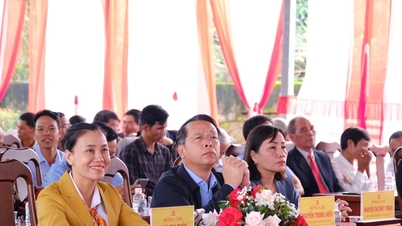

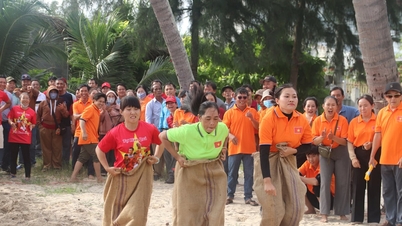
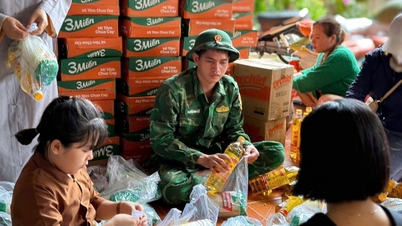


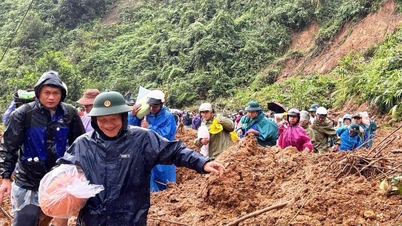

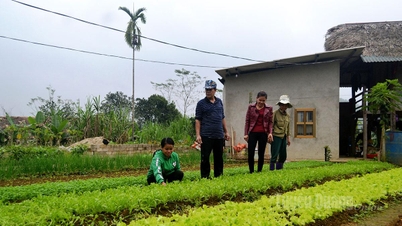

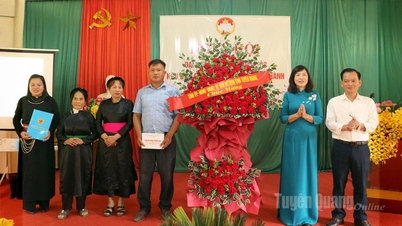
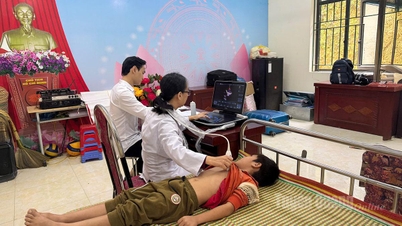
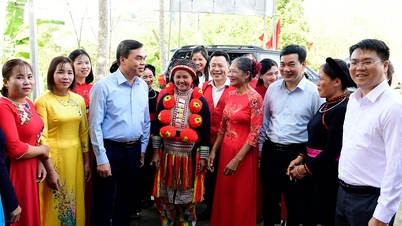
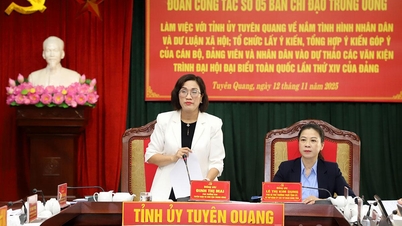





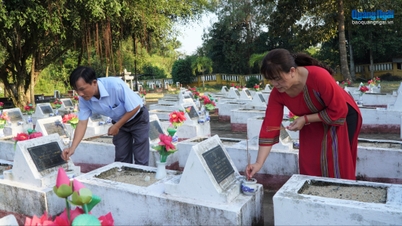
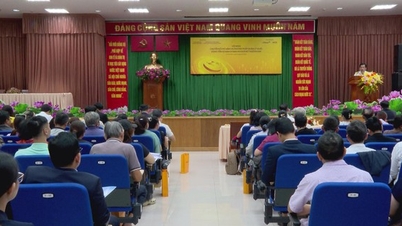


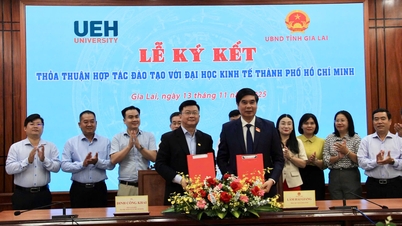
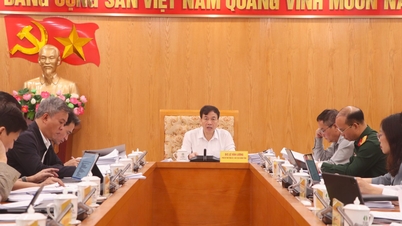


































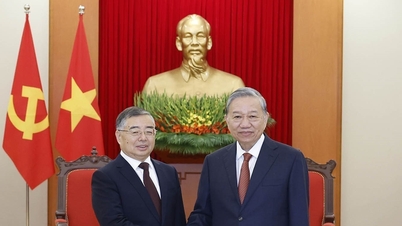
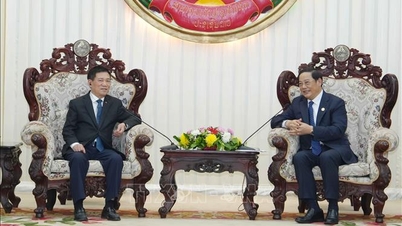


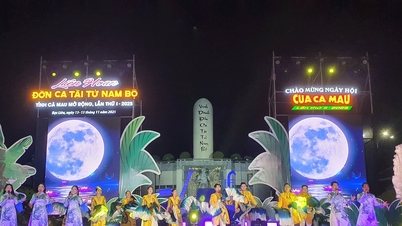




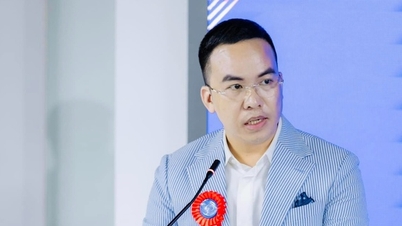


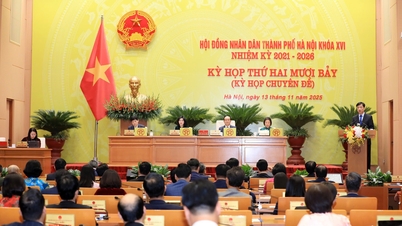

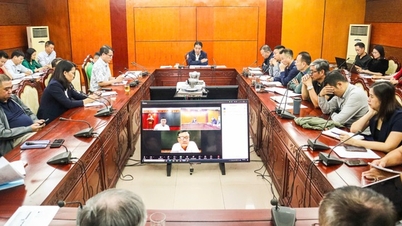

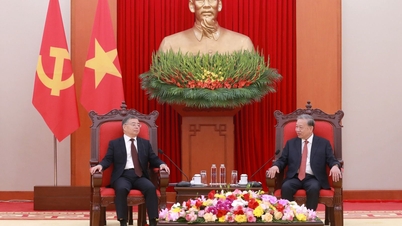
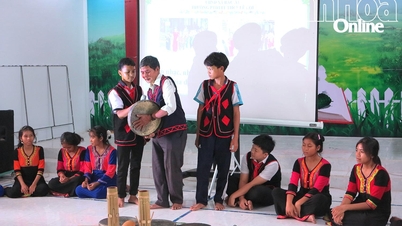

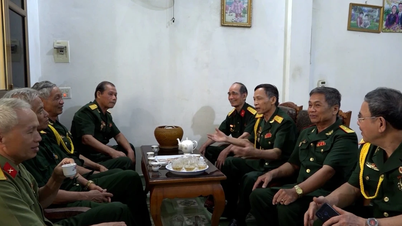

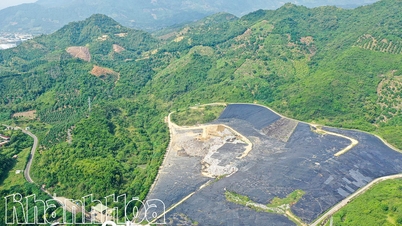
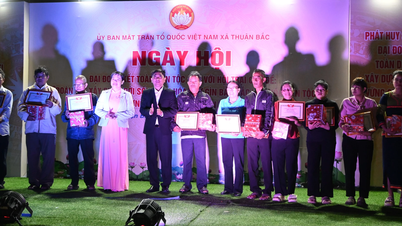
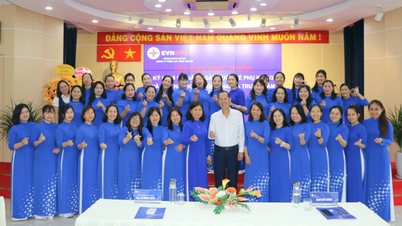
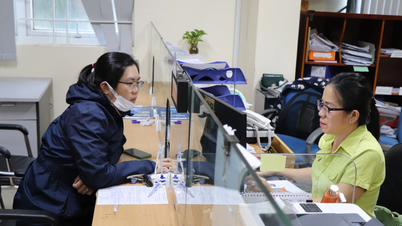





![Dong Nai OCOP transition: [Article 3] Linking tourism with OCOP product consumption](https://vphoto.vietnam.vn/thumb/402x226/vietnam/resource/IMAGE/2025/11/10/1762739199309_1324-2740-7_n-162543_981.jpeg)




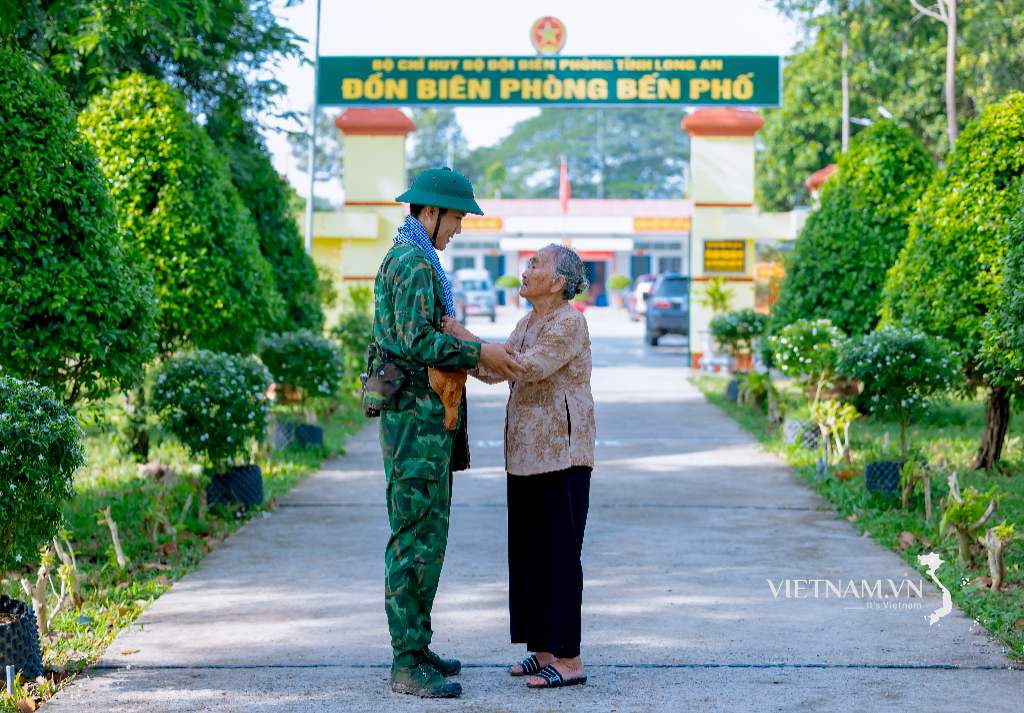


Comment (0)